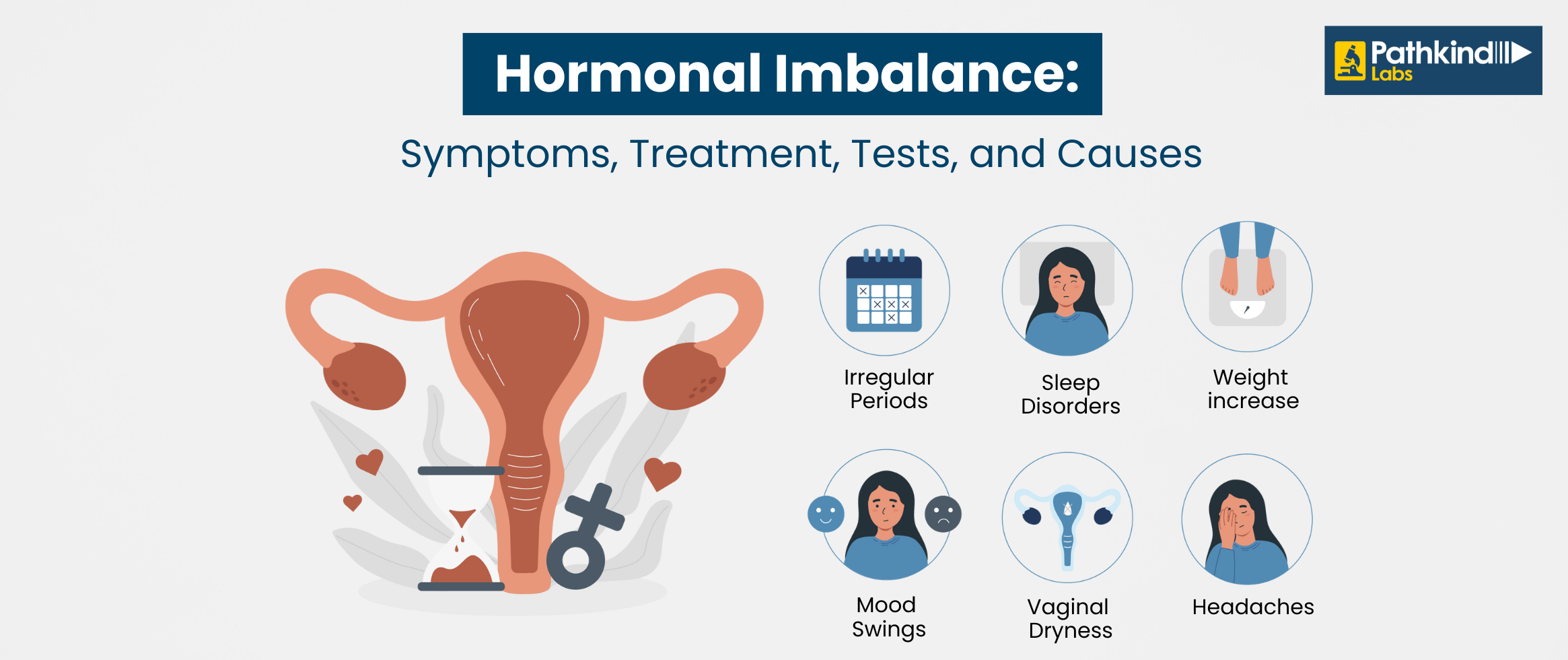The TSH 3rd generation test is a laboratory examination used to assess a person's blood level of TSH (thyroid-stimulating hormone). TSH is a hormone that the pituitary gland secretes that controls the thyroid gland, which creates hormones that are essential for growth and metabolism. The procedure for the test involves drawing blood from the patient, which is subsequently sent to a lab for evaluation. A highly sensitive assay will be used in the laboratory to calculate the TSH level in the blood. Usually, the test results are available in a few days.
Why is TSH 3rd Generation Test Done?
When there is a suspicion that a patient may have a thyroid issue, a healthcare professional frequently orders the TSH 3rd generation test. The blood levels of thyroid hormones and TSH can alter as a result of thyroid illnesses such as hypothyroidism and hyperthyroidism, and the TSH 3rd generation test can be used to identify and treat these conditions.
The test can be used to:
Assist in the diagnosis of thyroid conditions such as hypo- or hyperthyroidism
Keep track of the impact of thyroid problem treatment
Assess for a potential problem of the pituitary gland which could be the cause of primary hypothyroidism.
TSH levels rise as the body attempts to stimulate the thyroid gland to generate more hormones in hypothyroidism because the thyroid gland does not produce enough hormones, and T4 and T3 hormone levels are also low.
On the other side, hyperthyroidism is brought on by an overactive thyroid gland, which results in excessive hormone production. As a result, TSH levels will decrease as the body attempts to reduce the activity of the gland, and T4 and T3 hormone levels will rise.
Who Should Get Tested for TSH 3rd Generation Test?
There are several groups of people who may be recommended to undergo a TSH 3rd generation test:
Those who exhibit symptoms of a thyroid disorder: A TSH test may be used to screen for a thyroid condition in people who exhibit symptoms like fatigue, weight gain, cold sensitivity, constipation, dry skin, or hair loss.
For those with a family history of thyroid disease or a history of thyroid disease themselves: A regular TSH test may be advised for someone who has a history of thyroid disease or who has a family member who has the condition since they may be more susceptible to acquiring a thyroid disorder.
Women who are or intend to become pregnant: Pregnant women have a higher chance of having thyroid abnormalities and can have a TSH test done to check for these diseases.
Persons who are taking specific medications: Because some medications can impact thyroid function, it may be advised that these people get their TSH levels checked.
Persons with other medical conditions: Because several medical diseases, such as diabetes or anaemia, might impair thyroid function, it may be advised that these people get TSH testing.
How Do I Prepare for TSH 3rd Generation Test?
For a TSH 3rd generation test, no specific preparation is often necessary. Typically, it involves a straightforward blood test that may be completed in a medical facility or clinic. No fasting is required before the test, which can be performed at any time of the day.
However, there are a few things you should keep in mind before getting tested:
Inform your healthcare provider of any medications you are currently taking, including over-the-counter medications and supplements. Some medications can affect the results of the test and may need to be discontinued before the test.
Inform your healthcare provider of any recent illnesses or medical conditions you have been diagnosed with, as these can also affect the results of the test.
Inform your healthcare provider of any recent surgeries or radiation treatments, as these can also affect the results of the test.
Remember to arrive at your appointment on time.
Follow any additional instructions your healthcare provider may give you before your test.
What to Expect During TSH 3rd Generation Test?
The TSH 3rd generation test is a simple blood test that is typically performed in a hospital or clinic setting. Typically, the process involves the following steps:
A comfortable position for sitting or lying down will be requested of you.
A healthcare professional will clean the area of your skin where the blood will be drawn, usually in the arm, and then wrap an elastic band around your upper arm to make the vein fill with blood and make it more visible.
The healthcare professional will then use a small needle to draw a small amount of blood from a vein in your arm. The needle is then removed, and a cotton ball or bandage is applied to the area to stop any bleeding.
The sample of blood is then sent to a laboratory for analysis. The laboratory will measure the amount of TSH in the blood using a highly sensitive assay.
The actual blood draw only takes a few minutes, and the complete procedure usually lasts less than 15 minutes. Usually, it is not painful, though there could be a little discomfort when the needle is inserted and/or a slight aching where the blood was drawn.
Understanding TSH 3rd Generation Test Results
Thyroid-stimulating hormone (TSH) levels in the blood are determined by a TSH 3rd generation test. The thyroid gland, which creates hormones essential for metabolism and growth, is controlled by TSH, which is produced by the pituitary gland. Microunits per litre (U/L) or milli-international units per litre (mIU/L) are typically used to express the test result. It is crucial to remember that TSH test outcomes should always be evaluated considering the patient's symptoms, physical exam, and outcomes from other lab tests, such as the level of T3 and T4. The standard range for normal TSH levels is typically between 0.5 to 5.0 mIU/L, though it might vary according to the lab and the population being tested. However, it is advised that you speak with your healthcare practitioner because they will be able to explain to you what the results indicate for you.
Some possible interpretations of the TSH 3rd generation test results are:
High TSH levels: This could be a sign of hypothyroidism, a condition when the thyroid gland does not produce enough thyroid hormones.
Low TSH levels: Also known as hyperthyroidism, this condition occurs when the thyroid gland produces excessive amounts of thyroid hormones.
Within the normal range TSH levels: This is regarded as a normal result and can indicate that the thyroid gland is operating normally and that the patient does not have hypo- or hyperthyroidism.




 NABL approved
NABL approved  Most Trusted by
Most Trusted by  Accuracy &
Accuracy &  Widest Range
Widest Range 















